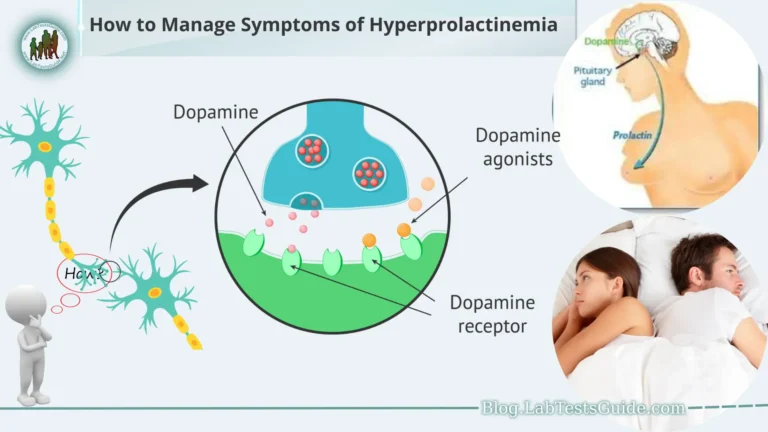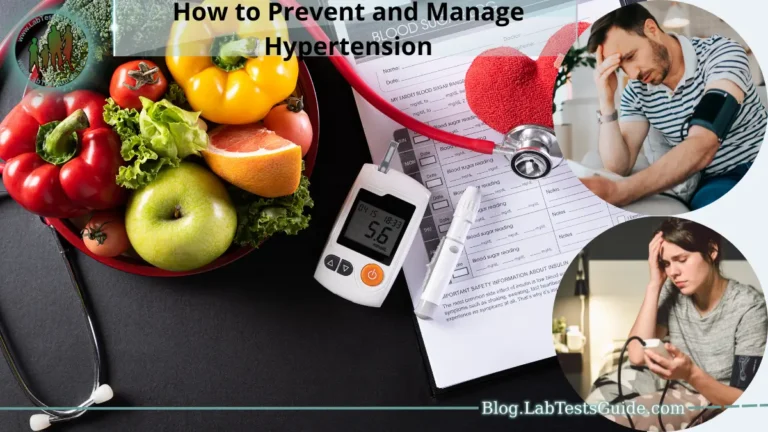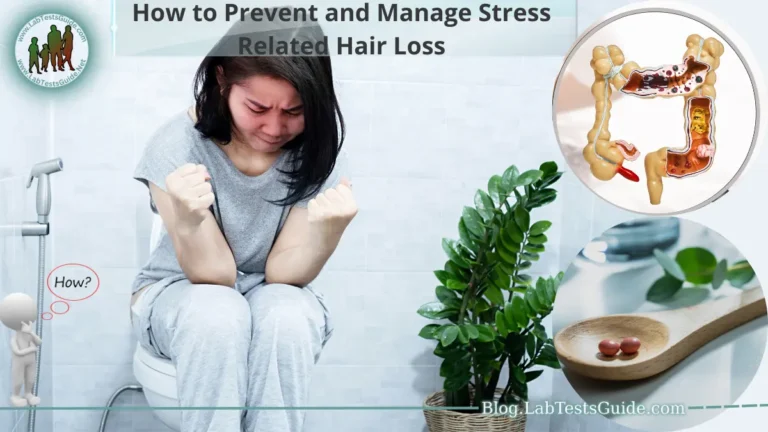Welcome to the comprehensive guide on how to lower your blood pressure, a critical aspect of maintaining optimal health and preventing potential complications. High blood pressure, or hypertension, affects millions of people worldwide and is a significant risk factor for heart disease, stroke, and other serious health issues. Fortunately, there are various lifestyle changes, habits, and strategies that can help you bring your blood pressure levels within a healthy range and improve your overall well-being.

In this guide, we will explore the fundamental concepts of blood pressure, its importance in the body, and the potential consequences of uncontrolled hypertension. Moreover, we will delve into a wide array of practical and evidence-based approaches for managing and reducing blood pressure naturally. From making dietary adjustments and engaging in regular physical activity to stress management techniques and the significance of monitoring blood pressure, we aim to equip you with the knowledge and tools to take charge of your health and lead a life of vitality and wellness. Always remember to consult with your healthcare provider before implementing any significant changes to your lifestyle or medical treatment, as individual circumstances may vary. Let’s embark on this journey together to discover how you can effectively lower your blood pressure and pave the way to a healthier and more fulfilling life.
What Is Blood Pressure?
- Definition: Blood pressure refers to the force exerted by blood against the walls of blood vessels as it circulates through the body.
- Measurement: Blood pressure is typically recorded as two values – systolic pressure (the higher value) and diastolic pressure (the lower value) – expressed in millimeters of mercury (mmHg).
- Systolic Pressure: This represents the pressure when the heart contracts and pumps blood into the arteries.
- Diastolic Pressure: This indicates the pressure when the heart is at rest between beats.
- Normal Blood Pressure: A healthy blood pressure reading is generally around 120/80 mmHg, with 120 being the systolic pressure and 80 being the diastolic pressure.
- Hypertension: High blood pressure, or hypertension, occurs when the blood pressure consistently exceeds 130/80 mmHg.
- Hypotension: Low blood pressure, or hypotension, is when the blood pressure falls below 90/60 mmHg.
- Importance: Blood pressure is essential for maintaining proper circulation and delivering oxygen and nutrients to various organs and tissues in the body.
- Regulation: Blood pressure is regulated by the intricate interplay of various systems, including the nervous system, hormones (like renin-angiotensin-aldosterone system), and the cardiovascular system.
- Health Implications: Persistent high blood pressure can strain the heart and blood vessels, increasing the risk of heart disease, stroke, kidney damage, and other health complications.
- Monitoring: Regular blood pressure checks are crucial to detect and manage any abnormalities early on.
- Lifestyle Factors: Diet, physical activity, stress, and tobacco use can significantly influence blood pressure levels. Adopting a healthy lifestyle is essential in managing blood pressure effectively.
How to Taking Control of Your Blood Pressure:
Here are some practical steps and strategies to help you manage and lower your blood pressure effectively.
- Know Your Numbers: Start by regularly monitoring your blood pressure. Understand what the numbers mean (systolic and diastolic readings) and how they relate to your overall health. Keep a record of your readings to track any changes over time.
- Adopt a Healthy Diet: Embrace a balanced and heart-healthy diet, such as the DASH (Dietary Approaches to Stop Hypertension) diet. Focus on consuming fruits, vegetables, whole grains, lean proteins, and low-fat dairy products. Reduce your intake of sodium, processed foods, sugary beverages, and saturated and trans fats.
- Get Active: Engage in regular physical activity to help lower blood pressure. Aim for at least 150 minutes of moderate-intensity aerobic exercise or 75 minutes of vigorous-intensity exercise per week. Incorporate activities like walking, jogging, swimming, or cycling into your routine.
- Maintain a Healthy Weight: If you are overweight or obese, losing even a small amount of weight can have a significant impact on lowering blood pressure. Combine a balanced diet with regular exercise to achieve and maintain a healthy weight.
- Manage Stress: Chronic stress can contribute to elevated blood pressure. Practice stress-reduction techniques like meditation, deep breathing exercises, yoga, or spending time in nature to help manage stress levels.
- Limit Alcohol and Quit Smoking: Excessive alcohol consumption can raise blood pressure, so aim to moderate your alcohol intake. Quitting smoking is also vital, as tobacco products can cause immediate spikes in blood pressure and damage blood vessels over time.
- Reduce Caffeine Intake: High caffeine consumption can temporarily elevate blood pressure. Be mindful of your caffeine intake from coffee, tea, energy drinks, and certain medications.
- Monitor Sodium Intake: Minimize your sodium intake by avoiding processed and packaged foods that are high in salt. Opt for fresh and whole foods whenever possible, and use herbs and spices to flavor your meals instead of salt.
- Medication Adherence: If prescribed blood pressure medication by your healthcare provider, take it as directed and do not skip doses. Regularly check in with your doctor to evaluate the effectiveness of the medication and discuss any concerns or side effects.
- Regular Checkups: Schedule regular appointments with your healthcare provider to monitor your blood pressure, review your overall health, and make necessary adjustments to your management plan.
Lifestyle Changes:
Here are some effective lifestyle changes to help lower your blood pressure.
- Adopt a Heart-Healthy Diet: Embrace the DASH diet, which emphasizes fruits, vegetables, whole grains, lean proteins, and low-fat dairy products. Reduce sodium intake by avoiding processed and salty foods. Incorporate potassium-rich foods like bananas, spinach, and sweet potatoes, as potassium helps counteract the effects of sodium on blood pressure.
- Maintain a Healthy Weight: If you are overweight or obese, losing weight can significantly improve blood pressure. Aim for gradual, sustainable weight loss through a combination of a healthy diet and regular physical activity.
- Get Regular Exercise: Engage in aerobic exercises such as walking, jogging, cycling, swimming, or dancing for at least 150 minutes per week. Additionally, include strength training exercises twice a week to improve overall cardiovascular health.
- Limit Alcohol Consumption: Drinking alcohol in moderation may have some cardiovascular benefits, but excessive alcohol intake can raise blood pressure and lead to other health issues. Limit alcohol to moderate levels, which means up to one drink per day for women and up to two drinks per day for men.
- Quit Smoking: Smoking and exposure to tobacco products cause immediate spikes in blood pressure and damage blood vessels over time. Quitting smoking is one of the most significant steps you can take to improve your heart health and lower your blood pressure.
- Manage Stress: Chronic stress can elevate blood pressure. Practice relaxation techniques such as meditation, deep breathing exercises, yoga, or engaging in hobbies to reduce stress levels.
- Limit Caffeine Intake: While the impact of caffeine on blood pressure can vary among individuals, it’s wise to moderate your caffeine intake from coffee, tea, energy drinks, and certain medications.
- Sleep Well: Aim for 7-9 hours of quality sleep per night. Poor sleep patterns can contribute to elevated blood pressure and other health problems.
- Monitor Your Blood Pressure: Regularly check your blood pressure at home using a reliable blood pressure monitor. Keeping track of your readings can help you and your healthcare provider monitor your progress and adjust your management plan if necessary.
- Stay Hydrated: Drink an adequate amount of water daily. Proper hydration is essential for maintaining healthy blood pressure levels.
Managing Stress:
Here are some strategies to help you manage stress and lower your blood pressure.
- Mindfulness Meditation: Practice mindfulness meditation regularly to focus on the present moment and cultivate awareness of your thoughts and feelings without judgment. Mindfulness can help reduce stress and promote relaxation, ultimately contributing to lower blood pressure.
- Deep Breathing Exercises: Incorporate deep breathing exercises into your daily routine. Deep breathing can activate the body’s relaxation response, leading to a decrease in stress hormones and a reduction in blood pressure.
- Physical Activity: Engage in regular physical activity, such as walking, yoga, or tai chi, to release tension and reduce stress levels. Exercise promotes the release of endorphins, which are natural mood boosters.
- Hobbies and Creative Outlets: Engaging in hobbies or creative activities you enjoy can provide a sense of accomplishment and help shift your focus away from stressors.
- Social Support: Talk to friends, family, or support groups about your feelings and experiences. Having a strong social support system can provide comfort during stressful times.
- Time Management: Prioritize tasks and manage your time effectively to reduce feelings of overwhelm and stress.
- Limit Stressors: Identify sources of stress in your life and take steps to reduce or eliminate them where possible. This may involve setting boundaries, saying no to additional commitments, or seeking support for challenging situations.
- Practice Gratitude: Cultivate an attitude of gratitude by focusing on the positive aspects of your life. Keeping a gratitude journal or expressing gratitude to others can help shift your perspective and reduce stress.
- Disconnect from Technology: Take regular breaks from screens and electronic devices. Unplugging can reduce feelings of stress and promote relaxation.
- Get Enough Sleep: Prioritize getting enough restful sleep each night. Sleep is essential for recovery and resilience in managing stress.
- Professional Help: If stress becomes overwhelming or begins to affect your well-being, consider seeking help from a mental health professional. Therapy and counseling can provide valuable tools and support in managing stress.
Quitting Smoking:
Here are some strategies to help you quit smoking.
- Set a Quit Date: Choose a specific date to quit smoking, and mark it on your calendar. Having a target date can help you mentally prepare for the change.
- Seek Support: Inform your family, friends, and coworkers about your decision to quit smoking. Their encouragement and support can be valuable during this process.
- Identify Triggers: Recognize the situations, places, or emotions that trigger your urge to smoke. Be mindful of these triggers and develop alternative coping mechanisms.
- Nicotine Replacement Therapy (NRT): Consider using nicotine replacement products, such as nicotine patches, gum, lozenges, or inhalers, to gradually reduce nicotine dependence and manage withdrawal symptoms.
- Prescription Medications: Consult a healthcare provider about prescription medications that can aid in smoking cessation, such as bupropion or varenicline.
- Counseling and Support Groups: Participate in counseling or join support groups designed to help individuals quit smoking. Talking to others who are going through the same journey can be inspiring and beneficial.
- Avoid Temptations: Discard all smoking-related items, such as cigarettes, lighters, and ashtrays, from your home, workplace, and car. Avoid environments where smoking is prevalent, at least initially.
- Manage Stress: Develop healthy ways to cope with stress, as stress can be a trigger for smoking. Engage in relaxation techniques, exercise, or hobbies that help you unwind.
- Celebrate Milestones: Celebrate each day, week, or month without smoking. Reward yourself for your progress, reinforcing positive behavior.
- Visualize Your Success: Picture yourself as a non-smoker, enjoying improved health and vitality. Visualizing success can motivate you to stay committed to your goal.
- Stay Persistent: The process of quitting may have ups and downs, and you may experience setbacks. Stay persistent, and remember that each attempt is a step closer to success.
- Healthy Lifestyle: Focus on adopting a healthy lifestyle that includes regular exercise, a balanced diet, and stress management. These positive changes can complement your efforts to quit smoking and improve your overall health.
Monitoring Blood Pressure:
Here are some key points about monitoring blood pressure.
- Home Blood Pressure Monitoring: Home blood pressure monitors are widely available and easy to use. They allow you to measure your blood pressure in the comfort of your home, providing valuable data for tracking your progress and sharing with your healthcare provider.
- Frequency of Measurements: Your healthcare provider will determine how often you should measure your blood pressure based on your medical history and current health status. Generally, it’s recommended to check your blood pressure at least once a day or as instructed by your doctor.
- Proper Technique: To get accurate readings, follow the correct measuring technique. Sit in a relaxed position with your feet flat on the floor and your back supported. Avoid talking or moving during the measurement, and ensure your arm is at heart level.
- Record Your Readings: Keep a record of your blood pressure readings, including the date, time, and the arm used for measurement. This log can help identify any patterns or changes over time.
- Blood Pressure Targets: Work with your healthcare provider to set appropriate blood pressure targets based on your age, medical conditions, and overall health. These targets will guide your management plan.
- Identifying Trends: Monitoring your blood pressure regularly helps identify any upward or downward trends in your readings. This information can guide treatment adjustments or lifestyle modifications.
- Consult Your Healthcare Provider: Share your home blood pressure log with your healthcare provider during regular check-ups. They can use this information to assess your progress and make necessary adjustments to your treatment plan.
- Cuff Size: Ensure that the blood pressure cuff used is the appropriate size for your arm. An ill-fitting cuff may lead to inaccurate readings.
- 24-Hour Ambulatory Blood Pressure Monitoring: In some cases, your healthcare provider may recommend 24-hour ambulatory blood pressure monitoring. This involves wearing a portable device that measures your blood pressure at regular intervals throughout the day and night.
- White Coat Hypertension: Some individuals experience elevated blood pressure in medical settings due to anxiety (white coat hypertension). Home monitoring can help identify if this is the case for you.
Medication Management:
Here are some key points about medication management for blood pressure.
- Prescription by Healthcare Provider: Blood pressure medications should only be prescribed by a qualified healthcare provider, such as a doctor or a nurse practitioner, after a thorough assessment of your health condition and blood pressure readings.
- Types of Blood Pressure Medications: There are several classes of blood pressure medications, and the choice of medication depends on individual factors, including your specific health needs, medical history, and any other existing health conditions. Common classes of blood pressure medications include.
- Diuretics: Help the body remove excess sodium and water, reducing fluid buildup and lowering blood pressure.
- Beta-Blockers: Decrease heart rate and reduce the force of heart contractions, thereby reducing blood pressure.
- Angiotensin-Converting Enzyme (ACE) Inhibitors: Dilate blood vessels, reducing resistance to blood flow and lowering blood pressure.
- Angiotensin II Receptor Blockers (ARBs): Similar to ACE inhibitors, they dilate blood vessels and lower blood pressure.
- Calcium Channel Blockers: Relax and widen blood vessels, leading to reduced blood pressure.
- Alpha-Blockers: Reduce nerve impulses that tighten blood vessels, promoting blood flow and lowering blood pressure.
- Renin Inhibitors: Reduce the production of renin, an enzyme that plays a role in blood pressure regulation.
- Combination Therapy: In some cases, a single medication may not be enough to control blood pressure adequately. Your healthcare provider may prescribe a combination of medications from different classes to achieve the desired results.
- Adherence to Medication Regimen: It’s crucial to take blood pressure medications exactly as prescribed by your healthcare provider. Missing doses or stopping medication without consulting your doctor can lead to uncontrolled hypertension.
- Potential Side Effects: Blood pressure medications may have side effects, such as dizziness, fatigue, headache, or dry cough. Report any unusual or bothersome side effects to your healthcare provider promptly.
- Regular Follow-Up: Schedule regular check-ups with your healthcare provider to monitor your blood pressure, review medication effectiveness, and make any necessary adjustments to your treatment plan.
- Lifestyle Changes: While medication is essential for many people with high blood pressure, it should complement, not replace, healthy lifestyle changes. Continue to focus on a balanced diet, regular exercise, stress management, and other lifestyle modifications to support blood pressure control.
- Individualized Approach: Blood pressure management is individualized, and the effectiveness of specific medications can vary from person to person. Your healthcare provider will work with you to find the best combination of medications that suit your needs.
Complementary and Alternative Therapies:
Here are some commonly considered complementary and alternative therapies.
- Mind-Body Techniques: Practices such as yoga, tai chi, and qigong combine physical movements, controlled breathing, and meditation to promote relaxation and reduce stress. These techniques may help lower blood pressure indirectly by reducing stress levels.
- Acupuncture: Acupuncture involves the insertion of thin needles into specific points on the body to balance the flow of energy (qi). Some studies suggest that acupuncture may help lower blood pressure, but more research is needed to establish its effectiveness fully.
- Biofeedback: Biofeedback is a technique that uses electronic devices to help individuals become aware of and control physiological processes, such as heart rate and blood pressure. Learning to control these processes can potentially have a positive impact on blood pressure management.
- Herbal Supplements: Certain herbal supplements, such as hawthorn, garlic, and hibiscus, have been traditionally used to support cardiovascular health and may have modest blood pressure-lowering effects. However, it’s crucial to consult with your healthcare provider before using any herbal supplements, as they can interact with medications or have adverse effects on certain health conditions.
- Meditation and Relaxation: Regular meditation and relaxation techniques can help reduce stress and promote a sense of well-being, which may contribute to better blood pressure control.
- Aromatherapy: Some studies suggest that certain essential oils, like lavender and ylang-ylang, may have a calming effect, potentially helping to reduce stress and blood pressure. However, more research is needed to establish the effectiveness of aromatherapy for blood pressure management.
- Music Therapy: Listening to calming music or engaging in music therapy may help promote relaxation and reduce stress, which can have positive effects on blood pressure.
- Dietary Supplements: Certain dietary supplements, such as omega-3 fatty acids and coenzyme Q10 (CoQ10), have been studied for their potential blood pressure-lowering effects. However, it’s essential to approach dietary supplements with caution and seek guidance from your healthcare provider before using them.
FAQs:
What is blood pressure, and why is it important to monitor it?
Blood pressure is the force exerted by blood against the walls of blood vessels as it circulates through the body. Monitoring blood pressure is crucial because it helps detect hypertension (high blood pressure) or hypotension (low blood pressure), both of which can have significant implications for cardiovascular health.
What are the ideal blood pressure ranges for adults?
For adults, a healthy blood pressure reading is generally around 120/80 mmHg. However, ideal blood pressure ranges can vary based on age, medical history, and overall health.
What lifestyle changes can help lower blood pressure?
Lifestyle changes that can help lower blood pressure include adopting a heart-healthy diet (such as the DASH diet), engaging in regular physical activity, maintaining a healthy weight, quitting smoking, managing stress, limiting alcohol consumption, and monitoring sodium intake.
When should I consider blood pressure medication?
Blood pressure medication may be considered when lifestyle changes alone are not sufficient to bring blood pressure within a healthy range or when an individual has severe hypertension or additional cardiovascular risk factors.
Are there any alternative therapies for blood pressure management?
Yes, some complementary and alternative therapies, such as yoga, meditation, acupuncture, biofeedback, and certain herbal supplements, may offer additional support for blood pressure management. However, it’s essential to consult with a healthcare provider before trying these therapies to ensure they are safe and appropriate for individual health needs.
How often should I check my blood pressure at home?
The frequency of blood pressure checks at home depends on your health condition and your healthcare provider’s recommendations. In general, it’s recommended to check blood pressure at least once a day or as instructed by your doctor.
Can stress affect blood pressure levels?
Yes, stress can temporarily elevate blood pressure. Chronic stress can also contribute to hypertension over time. Managing stress through relaxation techniques and other coping strategies is important for blood pressure control.
What should I do if my blood pressure readings are consistently high?
If your blood pressure readings are consistently high, consult with your healthcare provider for proper evaluation and guidance. They can help determine the best course of action, which may include lifestyle changes, medication, or a combination of both.
Can certain dietary supplements help lower blood pressure?
Some dietary supplements, such as omega-3 fatty acids and CoQ10, have been studied for potential blood pressure-lowering effects. However, it’s essential to approach dietary supplements with caution and seek guidance from your healthcare provider before using them.
Is it possible to lower blood pressure without medication?
Yes, lifestyle modifications, such as adopting a healthy diet, engaging in regular physical activity, quitting smoking, managing stress, and limiting alcohol consumption, can help lower blood pressure without medication. However, the approach varies based on individual health needs and circumstances.
Conclusion:
In conclusion, managing and maintaining healthy blood pressure is essential for overall well-being and reducing the risk of cardiovascular complications. High blood pressure, or hypertension, affects millions of people worldwide, but fortunately, there are various effective strategies to lower and control it.
This comprehensive guide has covered crucial aspects of blood pressure management, including lifestyle changes, medication, stress management, and complementary therapies. Adopting a heart-healthy diet, engaging in regular physical activity, quitting smoking, managing stress, and limiting alcohol consumption are vital steps in achieving better blood pressure control.






